Nestled in a peaceful green dell, hidden beneath a glowing canopy of deciduous woodland, the morning sun shines over the old river port of Kyiv. Shafts of light pour into the courtyard of a bright-red, Soviet-era ribbon factory being artfully repurposed during a time of war.
For over a decade the 19th-century factory buildings on Nyzhnoiurkivska 31 in Podil district have been the go-to place in Kyiv for all-weekend raves and youth subcultures, welcomed by resident nightclubs Closer, Mezzanine and Otel’. It all came crashing down when Russia invaded Ukraine and most of the people who worked and socialised here either left for somewhere safe to shelter, joined the army, or started volunteering to help with the war effort. But today is a new dawn for the ribbon factory, with On Time, the country’s first large-scale alternative music and arts event since the invasion five months ago.
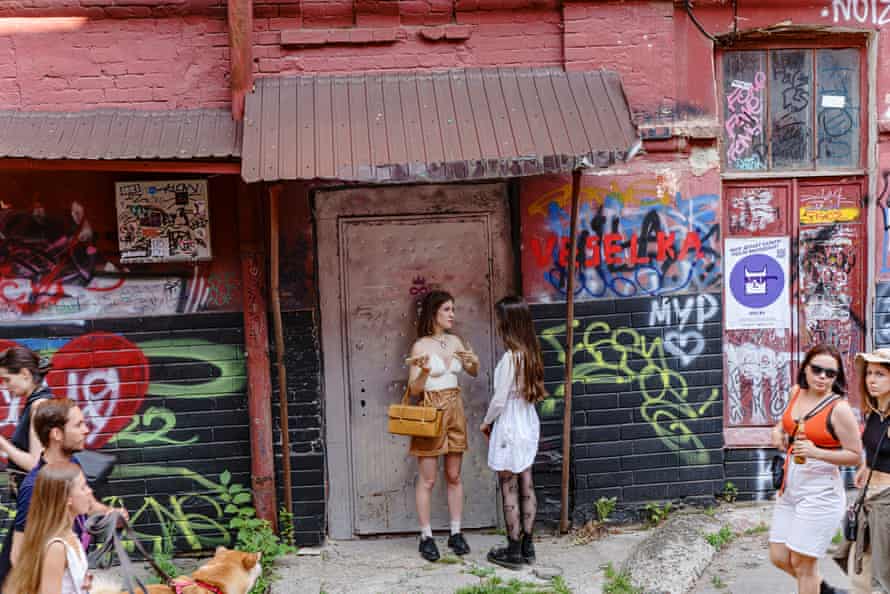
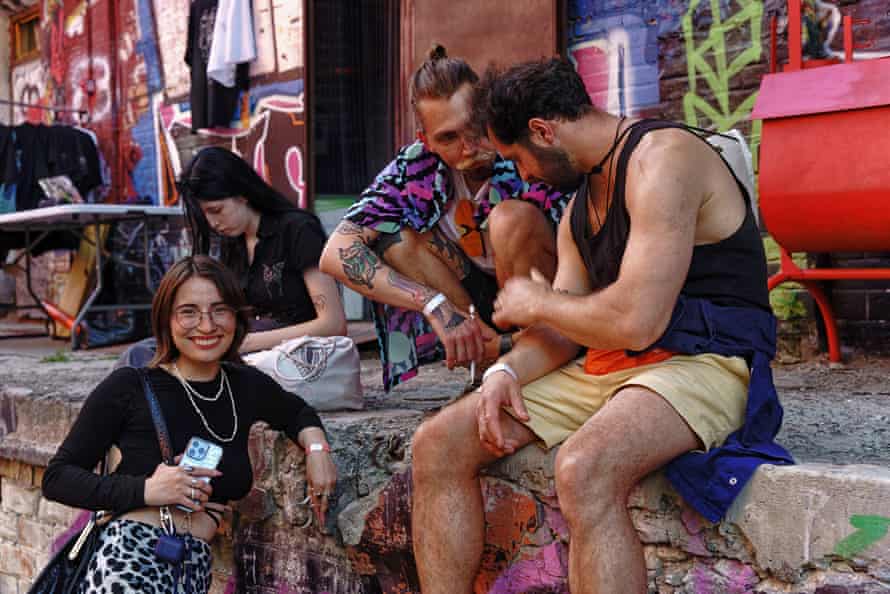
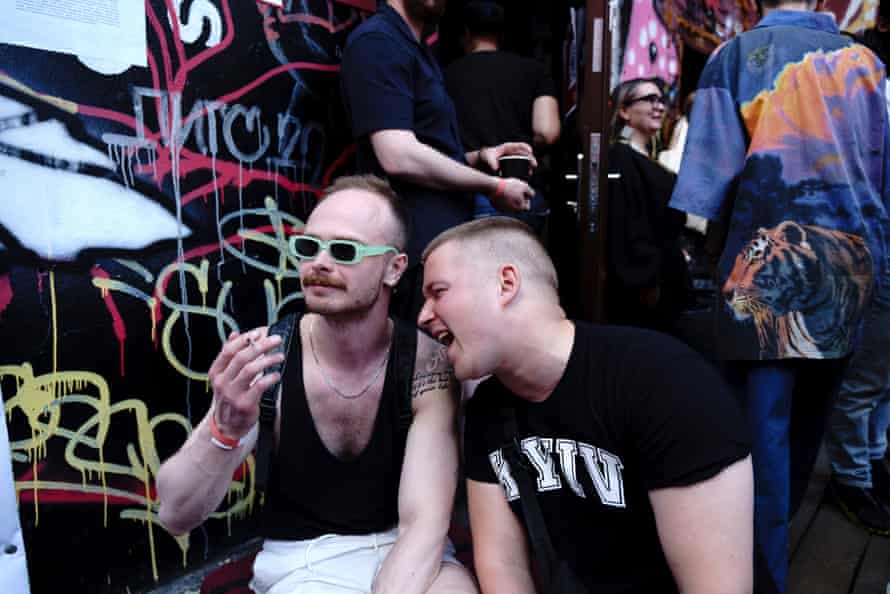
As we look at an art installation by Kyiv artist Igor GoRa, On Time curator Andrii Siguntsov says he is bringing together those “who are using art as a weapon to expose the war for what it is and as a kind of therapy for people caught up in the war.
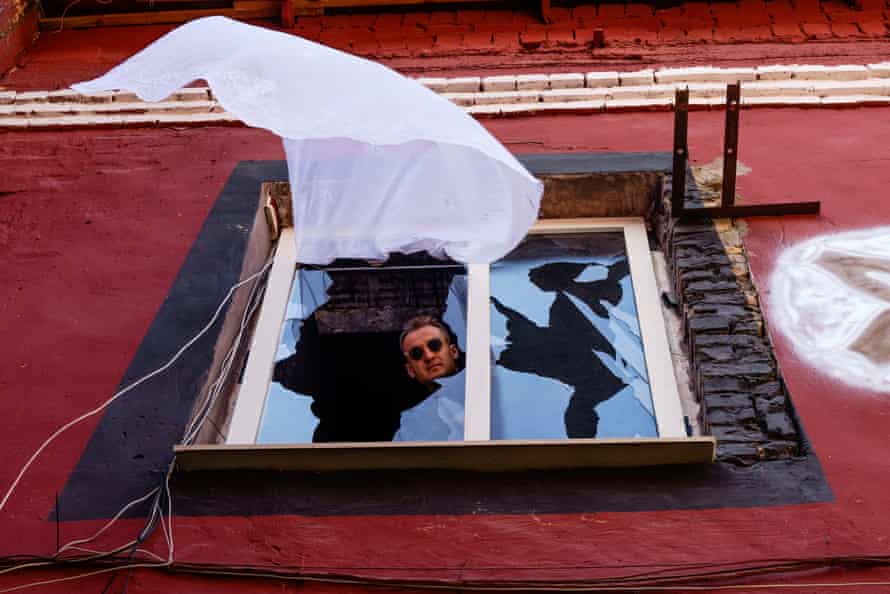
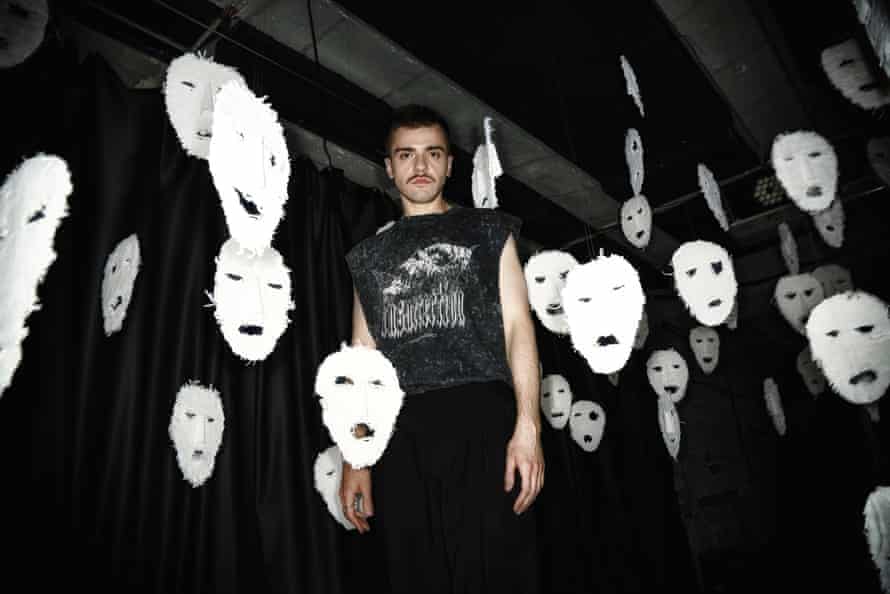
“These events and artists are here for the same goal: to leverage art and music as a force against the misinformation and violence that is bringing devastation to our lives, our land and our cultures, and in the process to raise money for our army, our volunteer groups as well as our artists whose lives have been hit as hard by the war as anyone else.”
Nightclubs Closer, Mezzanine and Otel’ are all participating by sharing their spaces and pooling resources – together they established The Ribbon Factory NGO, which will manage the territory and a bi-weekly arts event. According to Otel’ co-founder Pablo Derhachov, prewar-era nightlife and the music of that time isn’t the right tone for the new reality. “After we win the war, then maybe we can have techno parties again. But the techno scene before was becoming very commercial and all about big names and powerful promoters. Right now we need experimental music and art which is plugged in to our society and which has a social conscience, so everything is about building a closer community. War brought us closer and this festival is building out from that unity.”
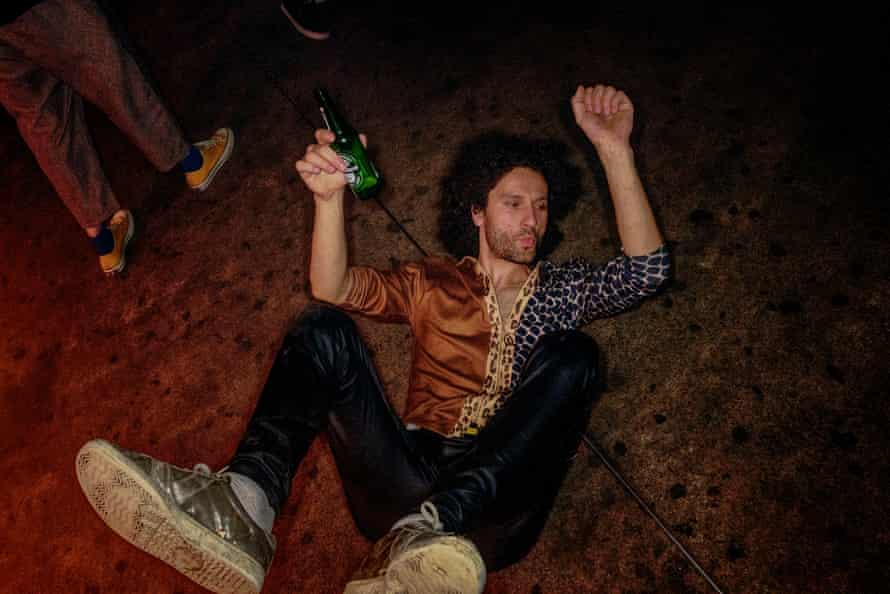
Live on stage in Otel’ we see metalcore band State 62, named after the postal code of their much-missed birthplace and home of Donetsk, which they left in 2014 when Russian proxies first seized it. “All our music is about the war and the lies that made possible the stealing of our lands, the killings, the genocide,” says lead singer Denis when we meet after the concert. “We write about the importance of truth and knowledge because, if we don’t understand about the war they made inside people’s heads, then we are braindead in society, and on the battlefield eventually we die too.”
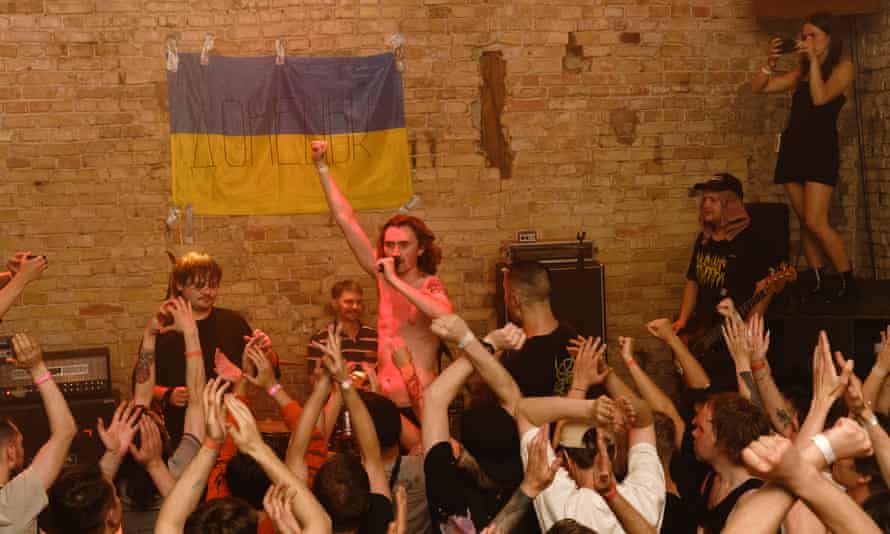
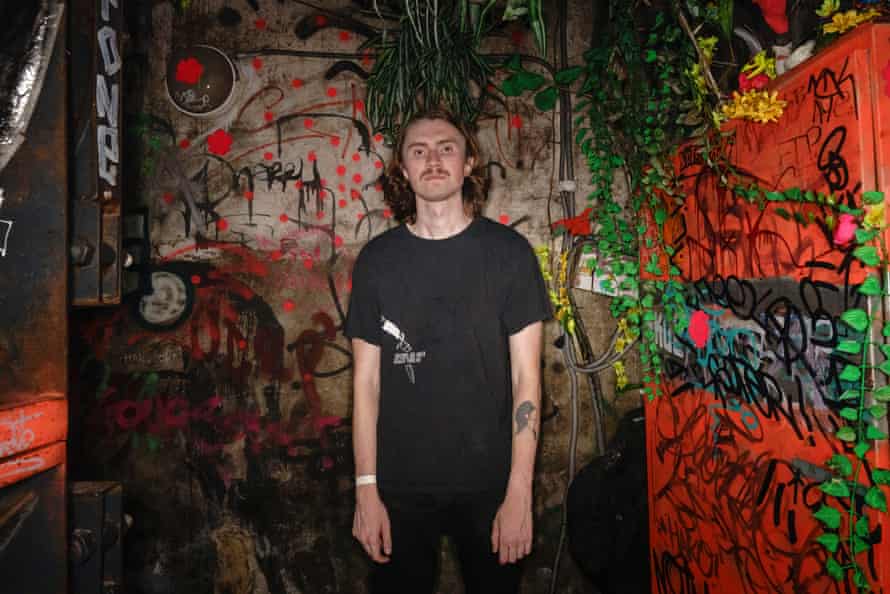
In another corner of the ribbon factory is a vaulted brick tunnel where nightclubbers would once come to chill or smoke. Today it’s a gallery and art workshop rolled into a cylinder, where 26-year-old artist Nastya Trofimova – with fellow Thugs Rugs founders Taya and Hlib – is one of several artists selling unique handicrafts with a punchy war theme. “We make custom rugs with designs which feature funny, strange but often powerful symbols of our youth and our society; many came about from collaborations with different local artists,” says Trofimova, or Nancy Broccoli as she calls herself on Etsy.
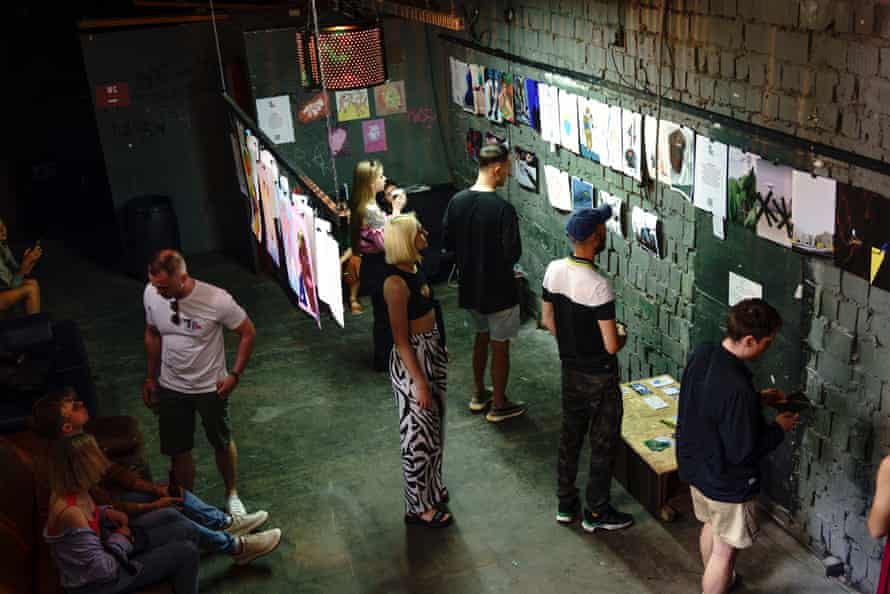
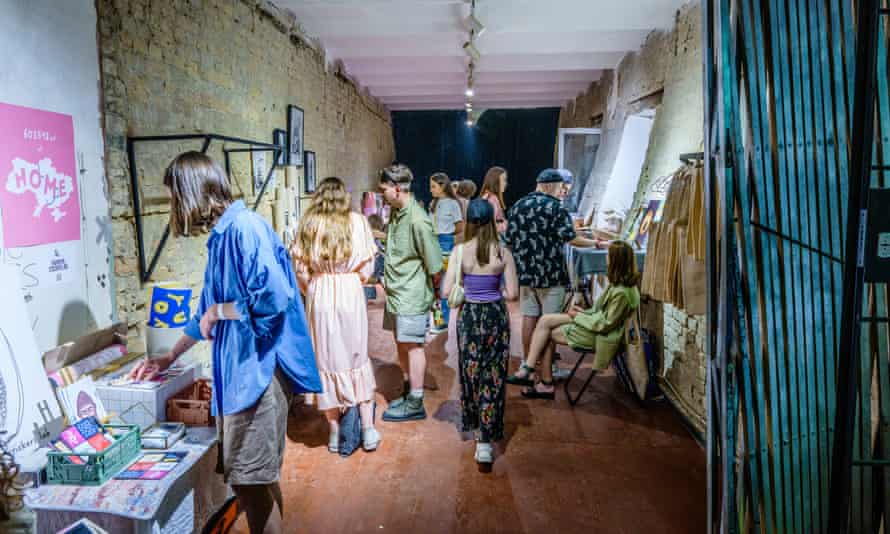
“It has been so hard for everyone. Losing people we love and also watching helplessly as our business evaporated. At the end of February we already thought it was all over – because who needs rugs when people are losing their homes and leaving the country? We just take every day as if it was our last day and try not to worry much further than that, but we were lucky to find some great new customers abroad, mainly from the US, Canada, Europe. It’s not as much as before but we are really grateful for this.”
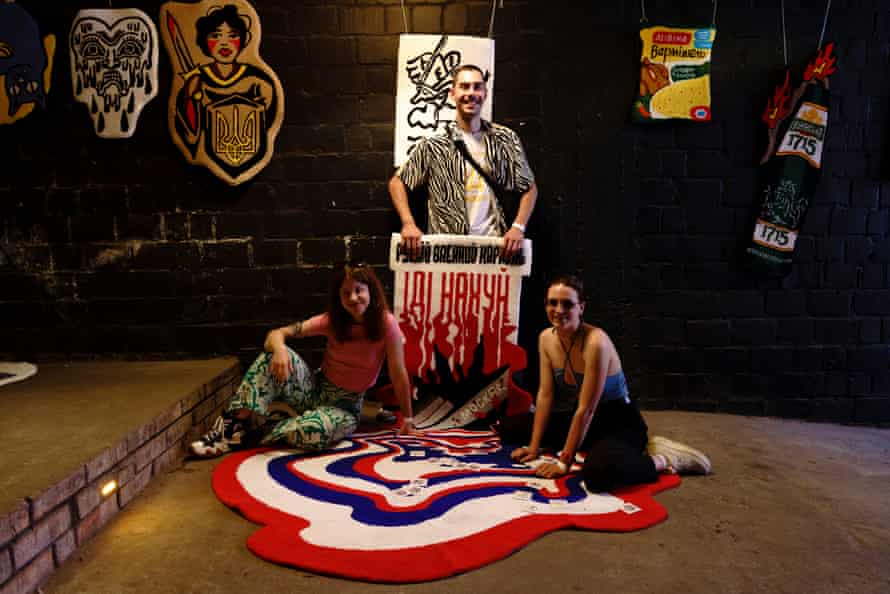
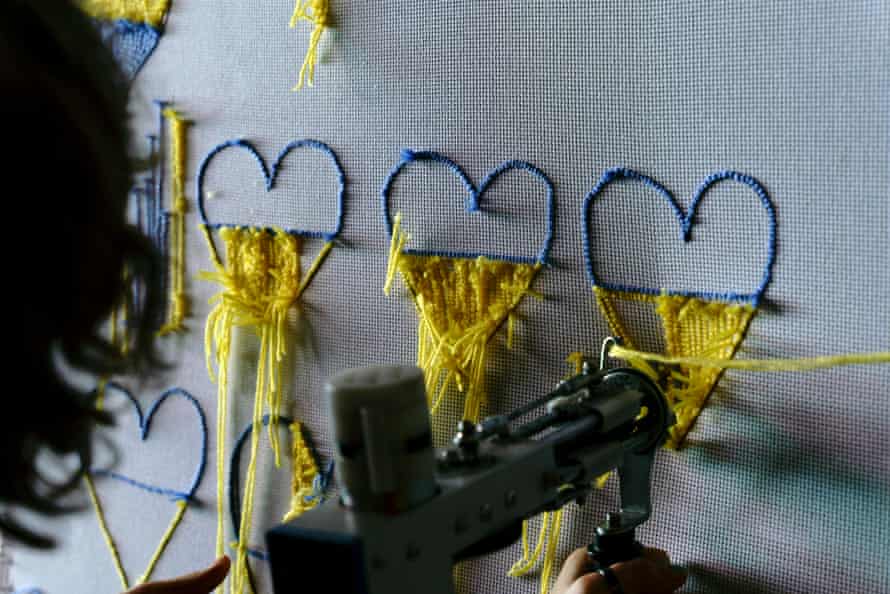
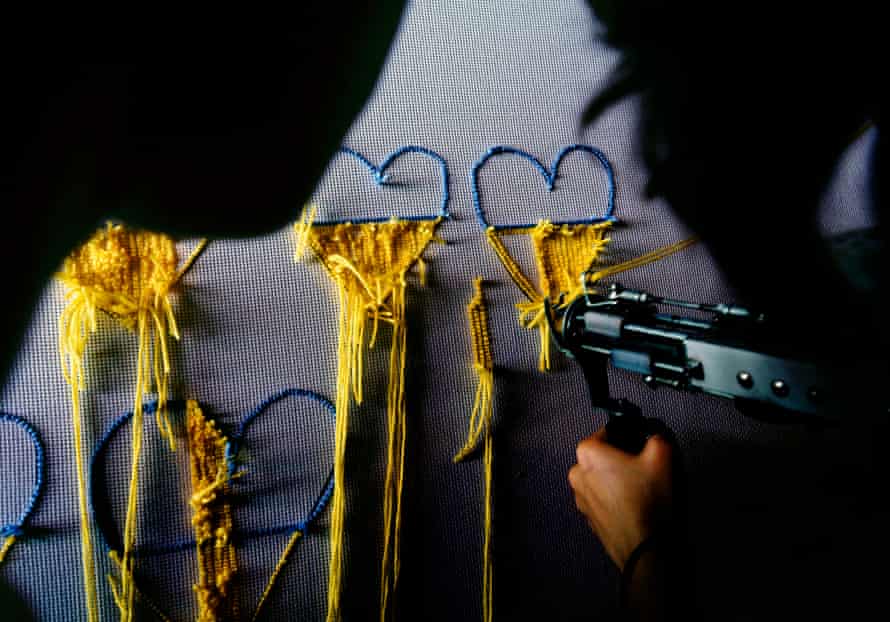
Taking the tufting gun in her hands Trofimova stitches bright yellow yarn on to a heart-shaped design and offers a try. “Take it, and shoot to love, because with this workshop we want visitors to understand not only how to use the gun, but more importantly what is behind our work.”
For illustrator and architect Natalia Shulga, showing her work along with several other artists in the Closer club gallery, the turmoil and the re-appearance of the arts community mirrors her own experience of living under an invasion. She moved to Lviv with a close friend who has children. “Life is turned on its head. Some of my best friends are in the army, so every day I’m worrying about them. Some sort of normality has returned in a way, but in the foreground is always the worry about those people fighting for our survival.
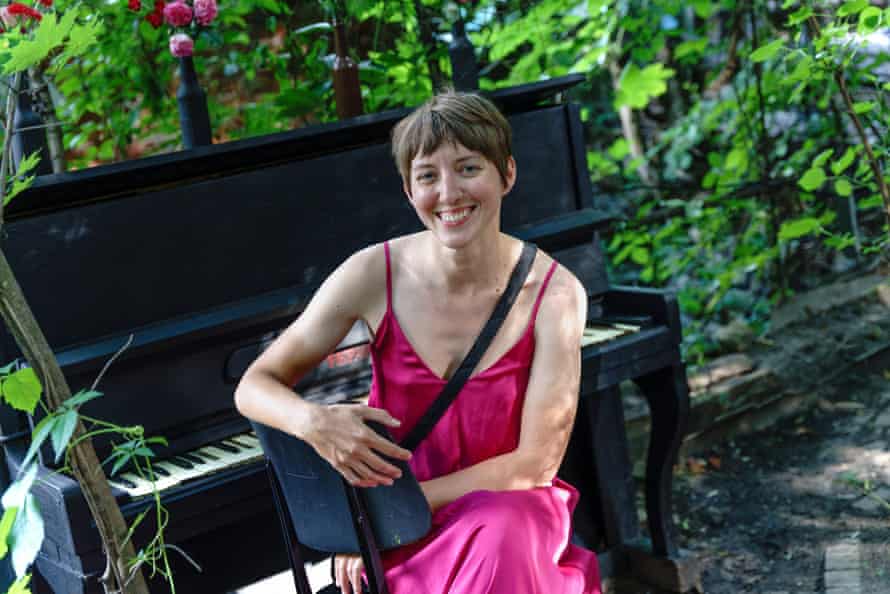
“To help me survive I need to be creative, so after a little while I started to work again. For the first few weeks of the war I couldn’t even listen to music, but eventually I thought, OK, what about one song,” says Shulga, smiling. “Even under war we must live, and that means appreciating others, nature and art and music too which can comfort us and open doors for us, so really without these things we can hardly be alive.” She says her art practice wasn’t just work, but “a sort of self-therapy, but when the viewer sees my work about Bucha and Mariupol I don’t want them to think about me, but all the people, for example, who were killed when the maternity hospital was bombed. It is literally about that horror and all the pain and anguish brought there.”
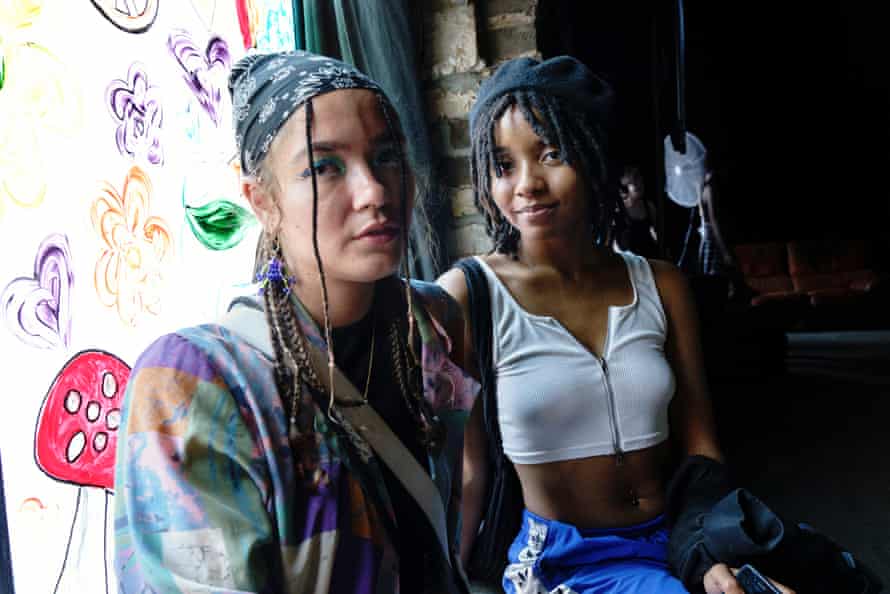
-
Friends Kara from Kyiv (left) and Zay (right) from New Jersey are thrilled about the festival. According to Zay, Kyiv is special: “It’s such an amazing place for art and culture, and so, so bright and interesting. I love the people, and the country, and the culture.”
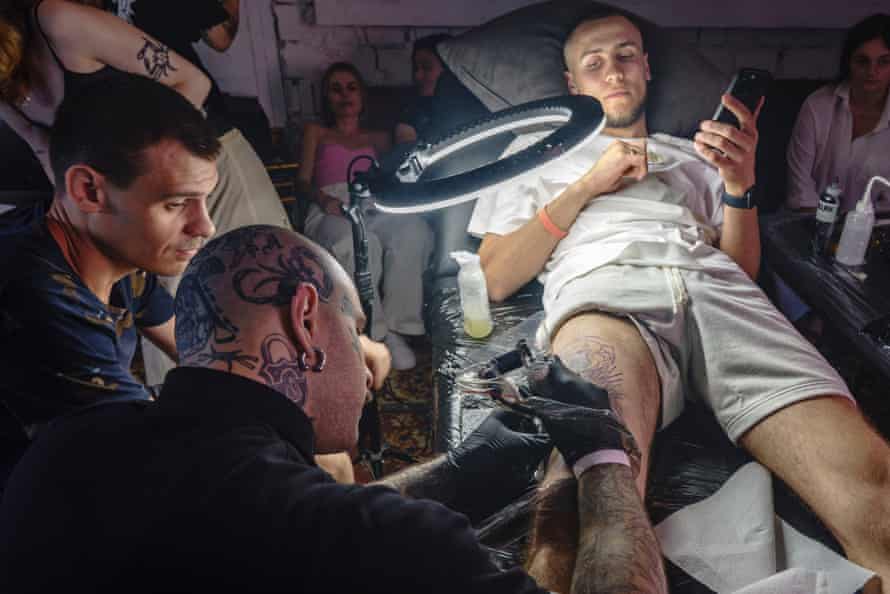
Grief, fear, anxiety, depression. That’s what clinical psychologist and photographer Alla Datsiuk tasked herself with combating a month after the war began. I meet her in one of the many corridors linking different parts of the ribbon factory; originally from the currently occupied southern city of Kherson, Datsiuk moved to Kyiv where she studied psychology at Vernadsky university. After the war began, she says she soon started thinking about novel approaches to her work and the climate of war.
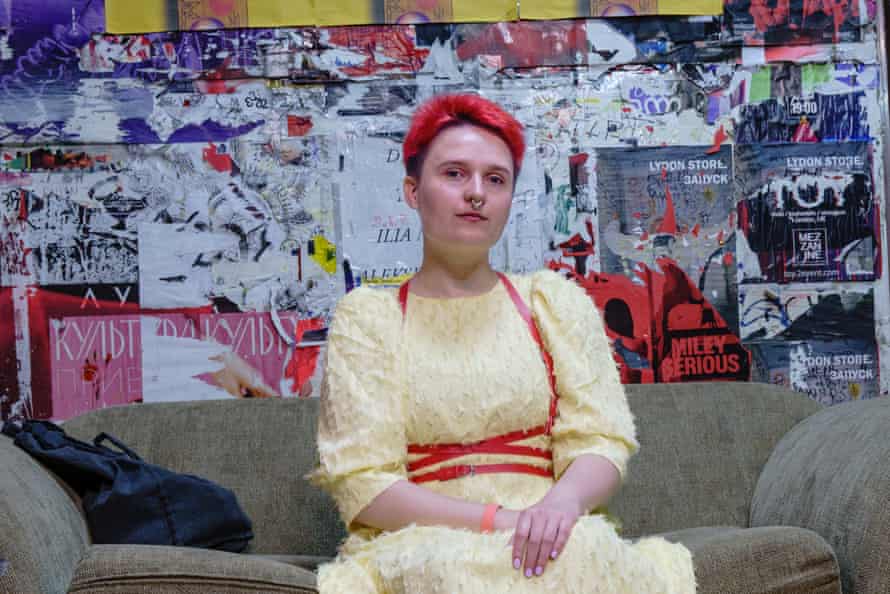
“I decided to combine my two passions – photography and psychology. And began conducting therapeutic photoshoots, which help people feel contact with their body; to get support and compassion.” Datsiuk has been busy helping traumatised patients ever since. “Vulnerable, lovely, sensitive people of all genders come to me for these sessions and it can get quite intense, with tears of pain and anguish, but also at the end some resolution and acceptance. Most of all I hope they go away feeling compassion and love for themselves and others.”
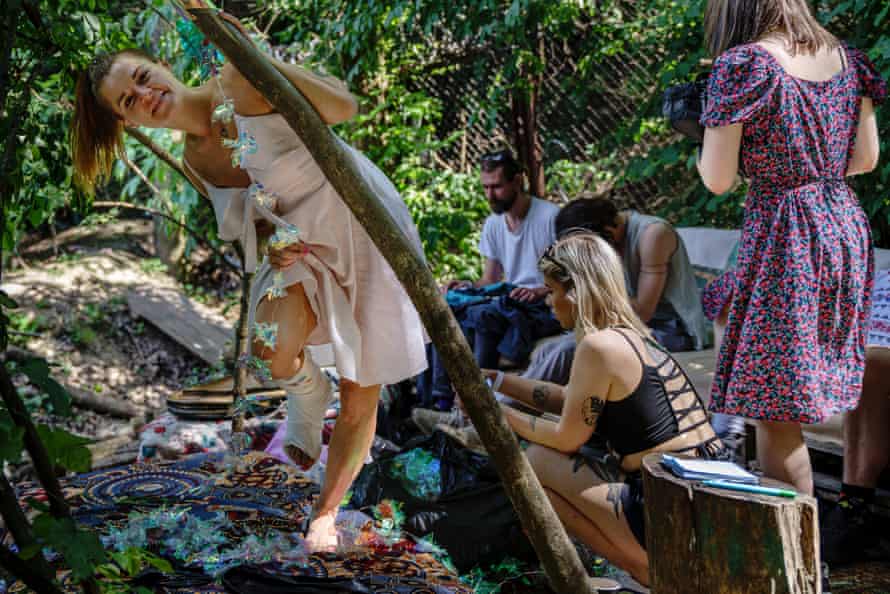
In the gardens on Closer’s dancing deck there’s beaming faces and smiles of people who seem hell bent on hugging and kissing each other after a long and enforced separation. One of them introduces herself as 25-year-old Tetiana, a physiotherapist, originally from Khabarovsk in far-eastern Russia. “It is wonderful to be back here after such a difficult long period,” she says, decorating trees with trinkets and colourful foil. “I lost six people who were very close to me, I could’t speak for a week and I almost went mad with grief, but this place of art and music and the community of people here fills me with so much love again.”
According to Tetiana, many Russians seem to live under a spell of propaganda. “I don’t talk to many members of my family and old friends, with whom you cannot reason: they say it was Ukraine that attacked Russia first, it just doesn’t make any sense.”
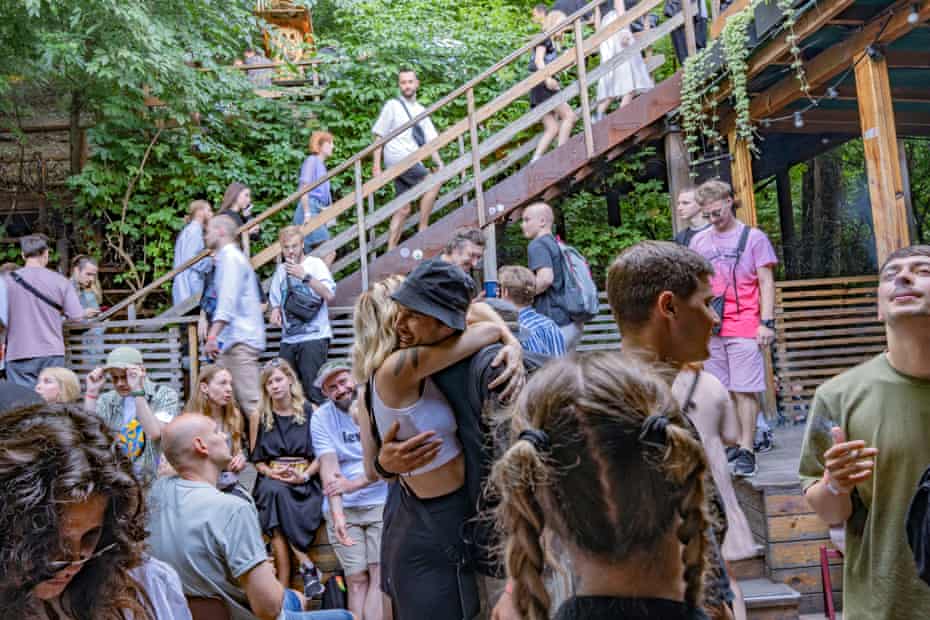
With the sun beginning to set and the curfew approaching, we move below the lush gardens beside one of the outdoor bars, where behind my back someone speaks quietly into my ear. “Death comes in many forms,” says the festivalgoer who introduces himself as Lucifer. “To be dead when you are still alive is the worst death – those are the people who support Putin. My mother is living under occupied Enerhodar, my friends have been killed, including a dear friend whose whole family were shot.” His voice turns scornful. “You know what, people used to look at me and be scared or say I was evil, but I would never kill peaceful people and steal their lives away. And now suddenly the same people think I’m an angel.”
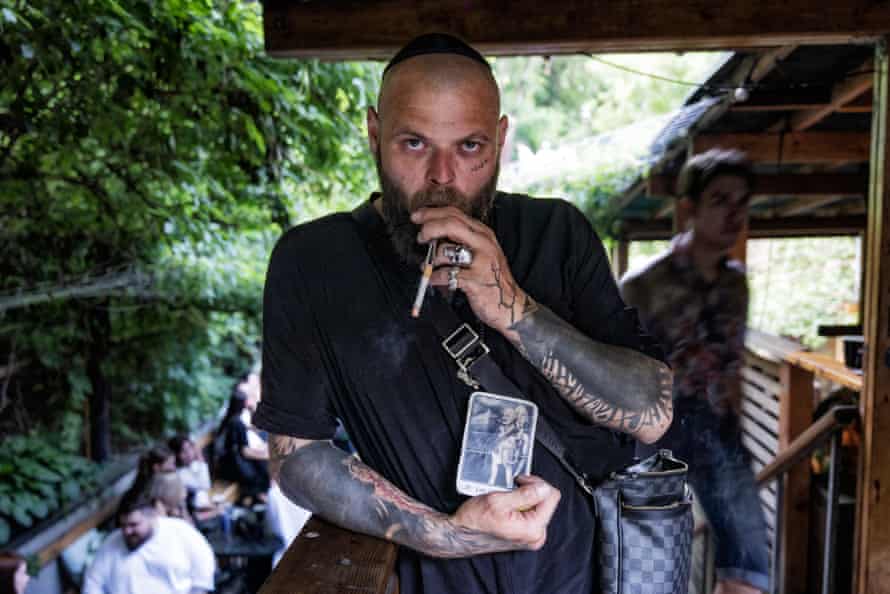
He shuffles a pack of tarot cards and offers a slug of whisky. “Despite all this darkness – in fact precisely because of it – love will emerge brighter than before and unlike these zombies that invaded our lands, we will live for ever.”
Stay connected with us on social media platform for instant update click here to join our Twitter, & Facebook
We are now on Telegram. Click here to join our channel (@TechiUpdate) and stay updated with the latest Technology headlines.
For all the latest Music News Click Here
